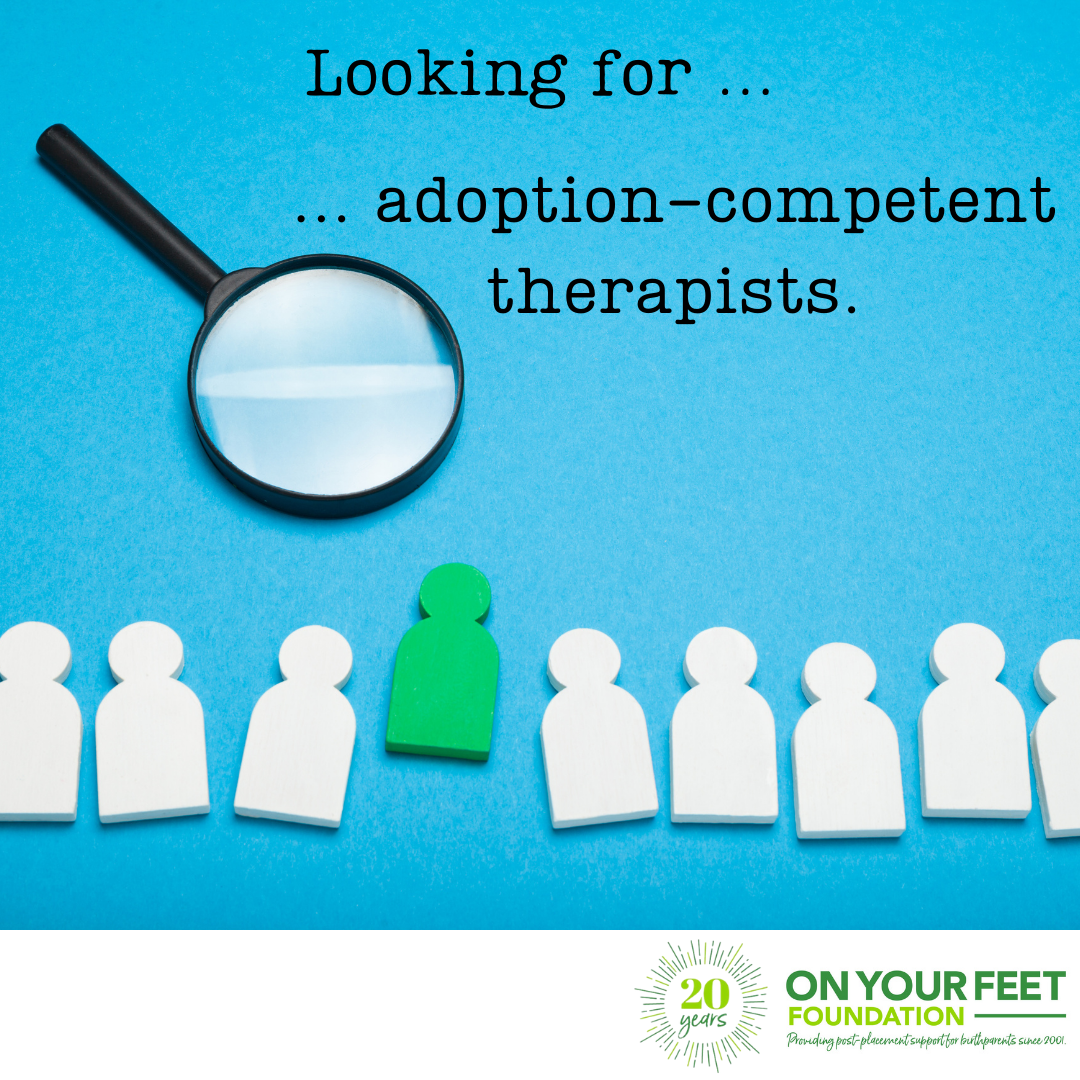
Adoption has a lifelong impact on every member of the adoption triad, and after placement, therapy can be a useful support to help birth parents with challenges that may arise for them. For birthmothers, finding a therapist who is adoption-competent is crucial to make sure they are getting the support they need from someone who understands what grief, trauma, and healing look like from the birthparent perspective. Today, with the help of Jennifer Adams, MS, our Director of Case Management Services, we are doing a deep-dive into why it is critical that birthparents work with adoption-competent therapists as part of their healing process. If you are, or know, an adoption-competent therapist, please let us know - we are building an adoption triad resource list.
What does it mean for someone to be an 'adoption-competent therapist?'
Simply put, an adoption-competent therapist is a licensed mental health professional who understands and is knowledgeable about adoption issues. This may be because their practice has been centered in adoption, or because they have sought out adoption-competency training, such as the Center for Adoption Support and Education’s post-Master’s Training for Adoption Competency (TAC) curriculum.
Are there specific qualifications to be considered an 'adoption-competent therapist?'
Adoption-competent therapists should possess the skills, knowledge, and values needed to support all members of the adoption triad process grief, separation, loss, and trauma. They should understand the formation of a family by adoption and recognize that not only do triad members have varying complexity and experience, but each adoptive family also has varying complexity and experience (ex. interracial, same-sex, etc). They understand that adoption is a process, not an event. Adoption-competent therapists should be knowledgeable and capable of using a wide range of therapies to treat all involved in the triad. Their mutual goal should be to help individuals heal, empower family members, and support healthy family relationships.
What makes adoption-competent therapy different from other types of therapy?
Adoption is a complex set of relationships, and not all therapists are equipped with the knowledge and skills necessary to provide effective support and treatment for birthparents. Placing a child for adoption brings with it a unique experience of loss and grief that isn’t generalizable to other kinds of loss, and requires a therapist that understands this.
Most of the information available about adoption-competent therapy centers on the adoptee experience. Why is it so crucial that birthmothers have access to an adoption-competent therapist?
It's crucial because so often birthparents are left out of the equation in the healing process when it comes to adoption. They are almost never focused on or talked about, possibly due to society being uncomfortable with addressing the complicated parameters surrounding placement. Adoptive parents tend to have better resources and the ability to advocate for their children, and it’s much easier for them to get their children receive the support and therapy they need to heal and deal with the complexity of adoption.
Birthparents are often not good advocates for themselves and aren’t always aware where to go for support. They need a safe space where they can learn how to deal with the grief and loss associated with the placement. They need someone they can talk to who understands their pain, their trauma, what brought them to make the decision to place, and can help provide tools to help them manage their grief and other feelings surrounding the adoption and past life experiences. They need a space where they don't feel judged and there is zero stigma attached.
For someone new to therapy, how do you know if you and your therapist are a good fit?
You have a sense of connection and a feeling of good rapport. You feel safe. You feel that your therapist is confident in their skills and knowledgeable on how to best support you. If the therapist challenges some of your thoughts, they are respectful and you never feel as though they are judging you. We always suggest giving a new therapist a few tries before moving on to another therapist or stopping counseling altogether. We encourage everyone to listen to how they feel, and if things seem off or a connection isn't there, that's okay, we will help in finding a new therapist for our birthparents.
What do we look for when searching for a therapist for one of our birthparents? What questions do we ask?
It depends on the birthparent. First and foremost, we ask if the therapist has experience working with the adoption triad and specifically with birthparents. We make sure when talking about adoption, the therapist uses positive adoption language. We ask if the therapist has experience working with families in adoptions that are closed, open or in reunion. And, of course we ask what type of adoption-competency training (if any) that the therapist has completed. If we cannot find a therapist in our birthparent's area we then turn our focus to therapists who specialize in grief, trauma, and PTSD; all issues related to adoption.











